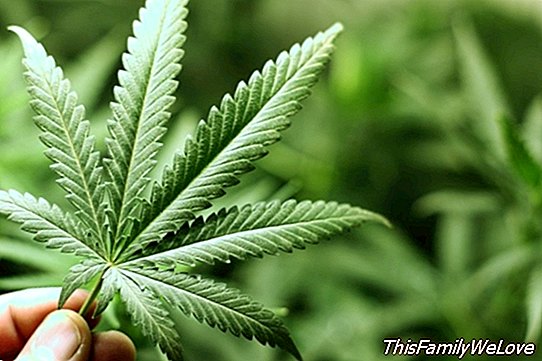10 things you may not know about marijuana

It is confusing for parents on the one hand to hear all the health hazards of drug use, such as marijuana, and on the other, to see how some countries change their laws by making them legal. In addition, when it comes to educating our teenage children, it is not enough to prohibit them from using marijuana because it is dangerous, but we must know how to argue with specific data.
10 things about marijuana
Narconon, a non-profit drug rehabilitation program, proposes 10 compelling reasons to help parents in this fight.
1. Marijuana is an "entry" drug. For many people, marijuana is the first drug they consume. The United Nations has stated that the use of cannabis almost always precedes the use of other drugs such as cocaine, methamphetamines or heroin. You will also be interested to know that smoking cigarettes at a young age makes the person more likely to start smoking marijuana.
2. Marijuana is more powerful than before. The strongest toxic chemical in marijuana is THC or tetrahydrocannabinol. As the culture methods change, the concentration of THC has increased. As potency increases, side effects also aggravate: anxiety, depression, psychosis, violent vomiting and addiction.
3. Reduces the ability to learn. Precisely the age groups most prone to the use of drugs such as marijuana - adolescents - are those in which they are in an important educational stage. It has been shown to cause difficulty thinking, memory and problem solving.
4. THC remains in the body, long after leaving the drug. THC dissolves in fat and adheres to the fatty tissues of the body.
5. It is addictive. Approximately 1 in 9 consumers will become addicted to the drug. If it begins in adolescence, you have 1 chance among 6 to become dependent. When one is dependent, a tolerance develops for the drug, for which it is necessary to consume more quantity to achieve the same effect.
6. Marijuana does not cure anything. There is no disease that actually improves because of the effects of marijuana. THC can help with the symptoms of some diseases, but there are often other alternatives.
7. It can cause destructive emotional changes. It has been found that chronic consumers go through emotional and behavioral changes that result in loss of motivation and ambition. This is often accompanied by less socialization, abandonment of goals and discipline problems.
8. It can create severe mental and physical effects. The high consumption of high potency marijuana is associated with a large number of psychotic attacks. In addition, the propensity to suicide and the incidence of severe depression increases.
9. Create serious risks. Driving a vehicle under the influence of marijuana is one of its great dangers. We can distort time and distance, in addition to lowering our concentration and attention in driving.
10. The environment affects your child. Most likely what you get to your teenage children are messages like: "everyone does it", "is not as harmful as alcohol", "relaxes you", "you become more creative when you smoke". Some are true, but do they really compensate for the harm the drug causes in you?
There are other, more secure and legal ways to have fun. Talk to them about this. And it is not true that "everyone else smokes". If your children are well informed, it will be easier for them to say "no, thank you".




